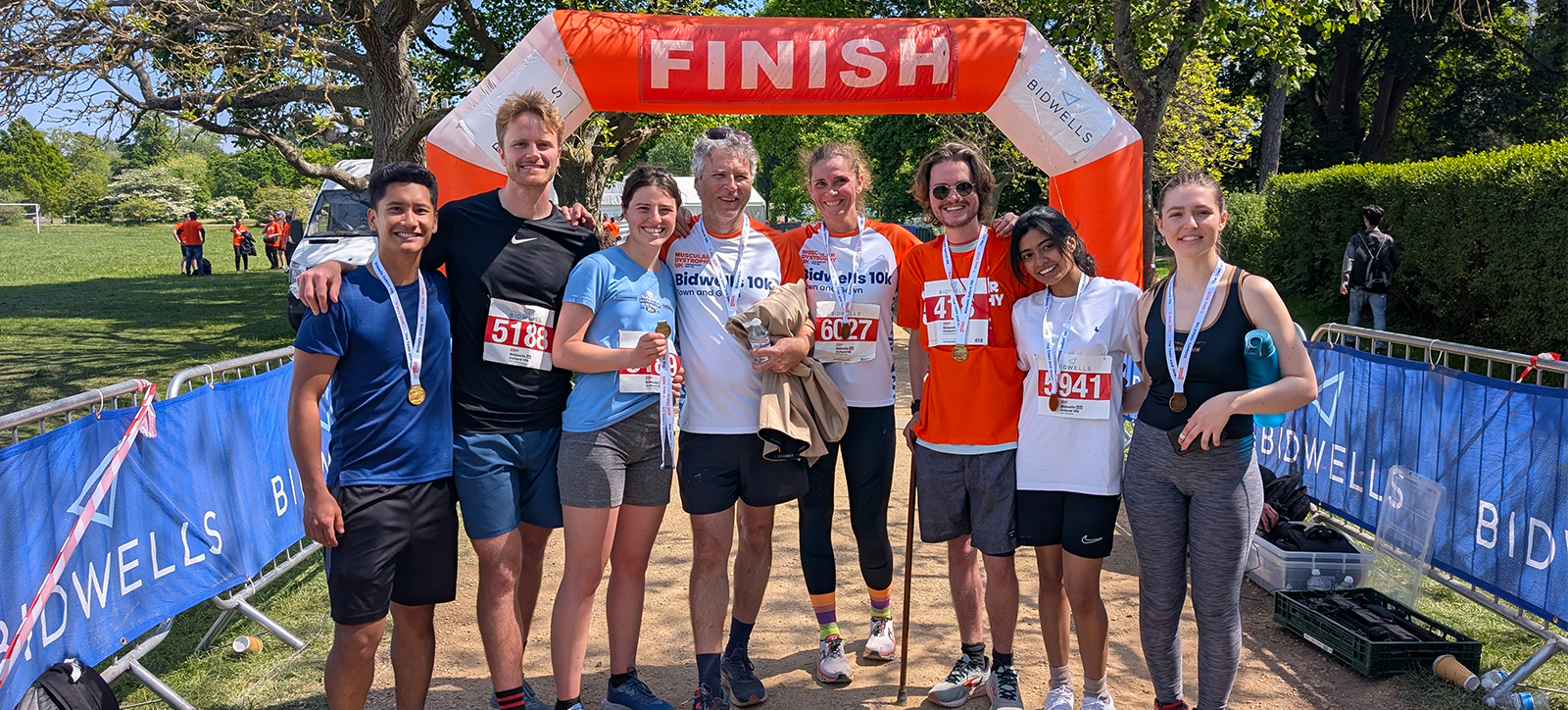
Finish line: Tristan Boedts (third from the right) started a 10km race before walking the course himself
Many students take some time to travel the world after they graduate and Tristan Boedts was no exception, but he had a greater sense of urgency than most when he graduated.
Born with limb girdle muscular dystrophy, a muscle-wasting disease that will eventually mean he won’t be able to walk, the Warwick Business School PhD student knew that time was of the essence.
“When I was 24, I realised that if I wanted to see the world, I should do it then while I was still able to,” says Tristan, who is now 28.
While his travels took him to destinations such as Machu Picchu, the Galapagos Islands and even Mount Everest base camp, he has ended up in Warwick.
He is currently in the first year of a five-year doctorate in Behavioural Science at WBS, having completed an MSc Consumer Behaviour at the University of Reading.
He has also become something of an unofficial ambassador for Muscular Dystrophy UK, which asked him to start this year’s annual 10km run in Oxford, an event set up in 1982 to raise money for the charity in memory of a local resident with the disease.
The benefits of studying in the UK
“It’s an incredibly important organisation,” he says. “I was standing there in front of 6,000 people who didn’t really want to listen to someone make a speech – all they wanted to do was run.
“But I talked briefly about my disability and my hope that because of events like these and people joining this race, cures might be discovered in future.”
Tristan went on to walk the course, finishing the run in two hours and 30 minutes.
“I was the first to start and the last to finish,” he says. “There’s a bit of defiance and managing my anger at my condition, but also why not do it while I still can? It’s important to raise awareness, but I wouldn’t do it if I didn’t enjoy it.”

While he is keen to highlight the issues people with disabilities face, he insists that “I just want to live my life normally”.
That is part of the reason for studying in the UK, where accessibility is much better than elsewhere in Europe.
“It’s not all great here, but compared to the continent, we’re miles ahead,” he says. “I can go to the pub with my friends and not have to worry about being able to use public transport or having to use the stairs.
“In Belgium, there are no laws like the UK’s 2010 Equality Act protecting those with disabilities. France and Germany don’t have that culture either – here, people are more willing to see you as a person rather than just someone in a wheelchair.”
Tackling misinformation with behavioural science
Although he is still only in the first year of his course, Tristan’s goal is to stay in academia for the long term.
He adds: “It’s a good mix of my personal interests and the freedom it allows me to manage my condition and live as normal a life as possible.
“Behavioural science is a fascinating subject. At the moment, I’m working on the issue of misinformation and ways to fight it by giving people more tools to recognise and deal with it.
“More education is a big part of it. I want to create an experiment where we put people in the shoes of someone making misinformation to see if that helps them to recognise it.”
One of the benefits of an academic life is that it allows him the flexibility to live as normal a life as possible.
“You do have a bit more freedom in academia than in other fields” he says. “If I need to take a day off because I’m ill, it’s not a problem.”
And as for the race – there is a sister run to the Oxford event, which is held in Cambridge every Autumn and he’s planning to sign up for that as well.




 X
X Facebook
Facebook LinkedIn
LinkedIn YouTube
YouTube Instagram
Instagram Tiktok
Tiktok